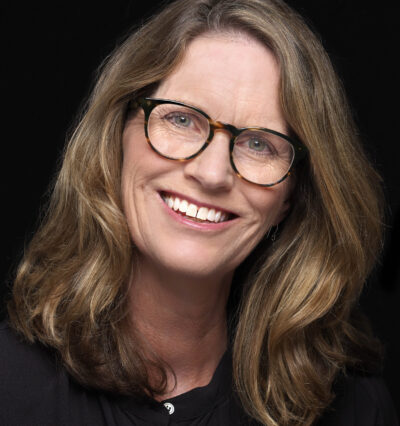Living like We’re Dying
Living like We’re Dying
Hi Friends,
Coming to you today with a tough subject — how to prepare for death. And yet, one I believe many people want to know more about but are afraid to ask. If that’s you, I hope this gives some encouragement and guidance. (And I’d love to know…what are the questions you have about “Living like we’re dying”?)
Beyond the country song…
We’ve all heard the familiar encouragement to “Live like we’re dying,” perhaps even singing out the lyrics to Tim McGraw’s poignant country song. It’s all well and good to sing along to a country song, but to actually live as if we’re dying is much much harder, as the late Pastor Tim Keller discovered. He had already written a book on death and was writing a book on the resurrection when he was faced with the diagnosis of incurable pancreatic cancer. Asked about his terminal diagnosis, he said, “Basically, we all function as if we’re going to live forever…. We are in deep, deep denial about it. And the only way you know that is when you finally actually do get the kind of diagnosis that you may die within months or weeks that I did and you suddenly realize, ‘I didn’t really believe I was going to die. I really didn’t.’” 1.
As Pastor Keller faced the certainty of his imminent death, he discovered an unexpected spiritual blessing. When we realize our mortality, we recognize the power in the hope of resurrection. Furthermore, when we realize our mortality, we recognize the need to prepare for it. In preparing for our own inevitable death, we not only benefit spiritually but also find emotional comfort. Preparing for death also benefits our loved ones by giving them clarity and guidance in the midst of their grief. While the process of preparing for our own deaths is far more complex than a simple list can convey, we have to start somewhere. We can begin by focusing on four key areas: contemplating the hope of heaven, establishing our practical legacy, cultivating and sharing our spiritual legacy, and being intentional about our emotional legacy.
1. Prepare spiritually by contemplating the hope of heaven.
Many of us fear death, and that shouldn’t surprise us. Scripture tells us we’ve all been “held in slavery by [our] fear of death” (Hebrews 2:15). But Jesus came and died to “break the power of him who holds the power of death—that is, the devil…” (Hebrews 2:14). Therefore, we have hope. Jesus has defeated our last enemy, death, giving us the hope of heaven.
Sadly, too many of us are misinformed about heaven. Our imaginations have been stuffed with cartoons of St. Peter standing at the “pearly gates” with a clipboard; we have been sent greeting cards of people floating around on clouds with angel wings. It is little wonder that some people fear being bored in heaven and don’t really want to go there.
We don’t know many details about heaven, but we do know enough to make us long to be there. First, we will be welcomed with great joy by our Savior, Jesus. We will be so overcome by the glory of the Triune God we will fall down in worship (Rev. 7:10-12). We will recognize loved ones there (see Matt. 17:1-3; Luke 16:19-31), and our surroundings will be “Paradise” (see Luke 23:43). In heaven, we will find the perfect rest we crave, rest for our bodies and rest for our souls. One day, the intermediate state of heaven will give way to the grand finale, the ending that is our truest beginning, life in the new heavens and new earth. In the new heavens and new earth, “Death shall be no more, neither shall there be mourning, nor crying, nor pain.” (Rev. 21:5). It was the anticipated joy of heaven that led Pastor Tim Keller to say to his family the evening before his death, “I’m ready to see Jesus. I can’t wait to see Jesus. Send me home.” 2
2. Prepare by establishing a practical legacy.
While some refer to it as “setting our affairs in order,” I prefer to call it a “practical legacy.” It involves organizing our end-of-life wishes, financial information, digital legacy, and essential documents, all of which serve as a practical gift to those who will handle the final details of our lives even as they grieve.
At the minimum, we should gather what I call the “first four”: our will, advance directive, durable power of attorney, and passwords. After gathering these four things, we can focus on getting other important documents and financial information together. Ideally, we will gather these things into one safe and secure place. Communicating with our loved ones about what we’ve gathered and where to find it is an important part of this process. When you gather these essentials now, you save your loved ones the heartache of having to ask you to do it when you are all in the turmoil of a significant health crisis.
3. Prepare by cultivating and sharing your spiritual legacy.
In Psalm 78, Asaph called the Israelites to remember and tell the wonders God had done in the wilderness so future generations would grow in faith and hope and love. In short, he encouraged them to pass on their spiritual legacy. As we share our stories, lessons, wisdom, and experience, we have the opportunity to show God’s merciful and mighty redemptive work in our lives.
To share parts of her story, my mother used a booklet called the Obitkit, in which she answered simple questions about her life. Surprisingly, even the simplest of questions revealed new insights into my mother’s story. Asked about her best subject in school, my mother responded, “Almost every subject, except PE, which kept me from getting valedictorian.” While I had always known my mother was smart, I had never realized her lack of athletic prowess prevented her from getting valedictorian. As you think about sharing your spiritual legacy, remember that even seemingly simple stories can give new insights into how God has shaped you.
In addition to passing on stories, we can share skills, family history, and blessings. Consider your specific skills or expertise that will benefit others— how to make that famous Texas sheet cake, how to drive on ice, how to pack for a long vacation. Share family history, knowing that the next generation may not seem interested now but will likely become interested after you’re gone. Preserve your family’s heritage by passing on photographs and stories. In addition, write or speak blessings to others. Like Isaac blessing Jacob, affirm the unique qualities and gifts of family members, leaving them with words that honor their God-given identity.
4. Prepare by being intentional about your emotional legacy.
In his book The Four Things That Matter Most, Dr. Ira Byock, a palliative care physician, provides recommendations for fostering meaningful relationships at the end of life: “Please forgive me. I forgive you. Thank you. I love you.” 3
In the final chapter of the book, Byock adds a fifth task, saying goodbye. By attending to these tasks before we approach the end of life, we can create an emotional legacy that brings comfort, peace, and hope to our loved ones.
Following the example of Jesus, who bid farewell to his disciples before his death in the Upper Room Discourse (John 13-17), we can express our love to family and friends and be intentional about saying good-bye. We can reassure our loved ones with our confidence that we are going to the place prepared for us by Christ. As forgiven individuals, we can ask for forgiveness from others and extend our own forgiveness, understanding that forgiveness does not minimize harm but releases our desire to make others pay. As people who have much to be grateful for, we can express gratitude to our loved ones through letters, calls, texts, or hugs.
Live like you’re dying
Martin Luther, 16th century pastor and theologian, spoke frequently about preparing for death. Though he didn’t use the words “Live like you’re dying,” he advised people to prepare to die while they were still healthy. Doing so, he said, would allow them to focus on their Savior when the end approached. While advances in medicine and practices around dying make death seem more remote from us, death remains non-negotiable. We will die; the only question is when. When we begin preparing for death now, we will find peace and hope in the gospel and we will leave a lasting legacy that comforts, guides, and inspires future generations.
Friends, I hope this article has encouraged you in hard places. I’d love to know about your struggles and successes in “living like you’re dying”…what hard things have you done or have you seen others do to prepare for death?
1. Tyler Huckabee, “Tim Keller on Facing Death (and Resurrection),” RELEVANT, March 2, 2021, https://relevantmagazine.com/magazine/tim-keller-on-facing-death-and-resurrection/.
2. Tim Keller, Quoted by his son, Michael Keller on Twitter, May 19, 2023.
3. Ira Byock, The Four Things That Matter Most – 10th Anniversary Edition: A Book About Living(New York: Free Press, 2004), 7.







